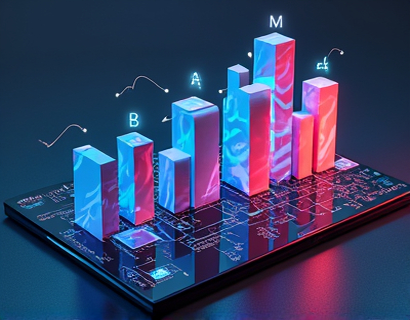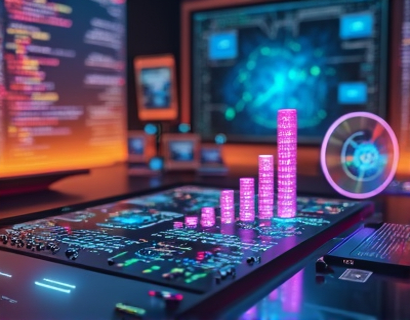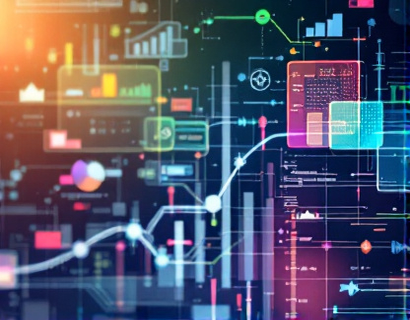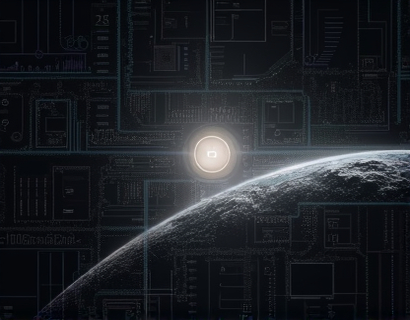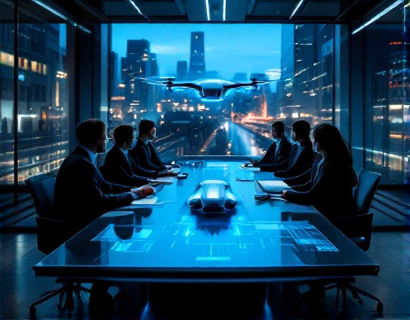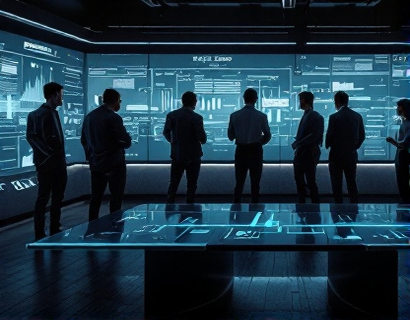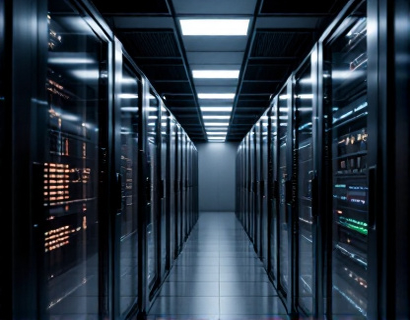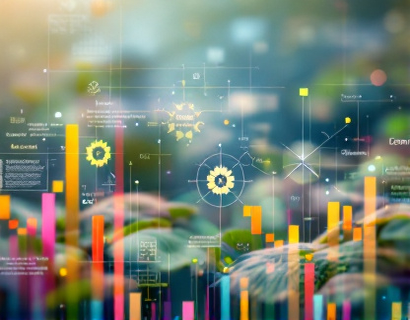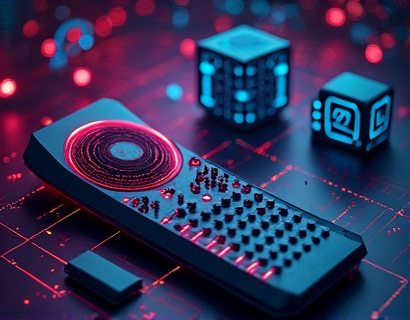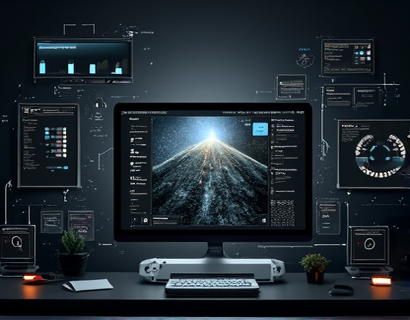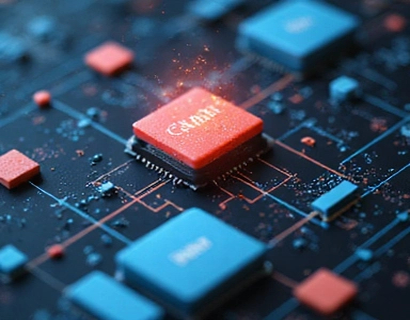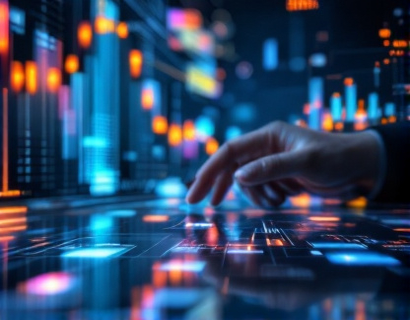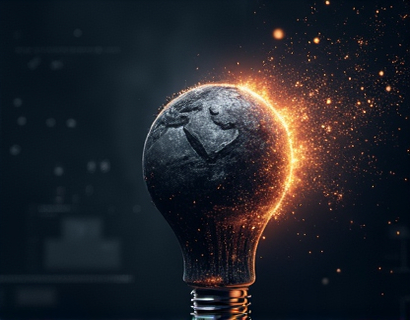AI-Driven Decentralization: Unleashing Next-Gen Productivity with Crypto Innovations
The intersection of artificial intelligence (AI) and decentralization is giving rise to a new era of productivity tools and app ecosystems. This fusion is not just a technological curiosity but a transformative force that is redefining how we work, collaborate, and manage digital tasks. By merging AI with cryptocurrency and decentralized technologies, we are unlocking seamless and efficient digital solutions that promise to revolutionize the way we interact with technology.
Decentralization, powered by blockchain technology, offers a paradigm shift from centralized systems to distributed networks. This shift brings numerous benefits, including enhanced security, transparency, and resilience. When combined with AI, the potential for innovation becomes immense. AI-driven decentralization is not just about improving existing systems but about creating entirely new paradigms for productivity and collaboration.
Understanding AI-Driven Decentralization
AI-driven decentralization involves the use of AI algorithms and models within decentralized networks. These networks operate without a central authority, relying instead on a distributed consensus mechanism. The integration of AI into these networks enables the automation and optimization of various processes, from data analysis and decision-making to content creation and resource management.
One of the key advantages of AI-driven decentralization is its ability to handle complex tasks with high efficiency and accuracy. AI models can process vast amounts of data in real-time, providing insights and recommendations that would be impractical for humans to generate manually. In a decentralized context, this means that network participants can benefit from these insights without relying on a central entity to manage or control the flow of information.
Enhancing Productivity through AI and Decentralization
The combination of AI and decentralization can significantly enhance productivity in various domains. For instance, in the realm of project management, AI-driven decentralized tools can automate task assignments, monitor progress, and predict potential bottlenecks. These tools can adapt to the dynamic nature of decentralized teams, ensuring that workflows remain efficient and collaborative, regardless of the team's geographical dispersion.
Consider a decentralized development environment where multiple developers from around the world collaborate on a project. An AI-driven platform can analyze the codebase, identify potential bugs, suggest optimizations, and even automate testing processes. This not only speeds up the development cycle but also reduces the likelihood of human error, leading to higher quality software releases.
Decentralized Marketplaces and AI
Decentralized marketplaces are another area where AI-driven innovations are making a significant impact. Traditional marketplaces often rely on intermediaries to facilitate transactions, which can lead to higher costs and slower processes. In a decentralized marketplace, AI can streamline these processes by verifying transactions, managing smart contracts, and ensuring compliance with predefined rules.
For example, an AI-driven decentralized marketplace for freelance services can use machine learning algorithms to match clients with the most suitable candidates based on skill sets, availability, and past performance. The platform can also handle payment processing through cryptocurrency, ensuring secure and transparent transactions. This reduces the need for intermediaries and lowers transaction costs, making the marketplace more efficient and accessible.
AI and Decentralized Identity Management
Identity management is a critical aspect of digital interactions, and decentralization offers a promising solution to the challenges of data privacy and security. AI can enhance decentralized identity management systems by providing advanced authentication mechanisms and personalized user experiences.
Decentralized identity (DID) systems use blockchain to give users control over their personal data. AI can improve these systems by analyzing user behavior and preferences to create more secure and user-friendly authentication processes. For instance, AI can detect anomalies in user activity and trigger additional verification steps to prevent unauthorized access. This not only enhances security but also simplifies the user experience by automating routine tasks.
Challenges and Considerations
While the potential of AI-driven decentralization is vast, there are several challenges that need to be addressed. One of the primary concerns is the technical complexity involved in integrating AI with decentralized systems. Developers must have a solid understanding of both AI algorithms and blockchain technology to create robust and scalable solutions.
Another challenge is the regulatory landscape. As decentralized technologies and AI continue to evolve, regulatory frameworks are still catching up. Ensuring compliance with existing laws while advocating for supportive regulations is crucial for the widespread adoption of these technologies.
Additionally, there is the issue of scalability. Decentralized networks can sometimes struggle with high transaction volumes and slow processing times. AI can help optimize these networks, but significant research and development are needed to achieve the necessary performance levels for large-scale applications.
Future Prospects
The future of AI-driven decentralization is bright, with numerous applications across various industries. In the healthcare sector, for example, AI can analyze medical data stored on decentralized platforms to provide personalized treatment recommendations. In finance, decentralized AI-powered trading platforms can offer more accurate predictions and automated trading strategies, reducing human bias and increasing efficiency.
The education sector can also benefit from AI-driven decentralization. Online learning platforms can use AI to personalize learning experiences, adapt to individual student needs, and provide real-time feedback. Decentralized networks ensure that educational resources are accessible and secure, fostering a more inclusive and equitable learning environment.
Conclusion
AI-driven decentralization represents a powerful convergence of technologies that has the potential to revolutionize productivity and collaboration. By leveraging the strengths of both AI and decentralization, we can create more efficient, secure, and user-centric digital solutions. As these technologies continue to mature, we can expect to see a new generation of apps and services that redefine the way we work and interact in the digital world.



